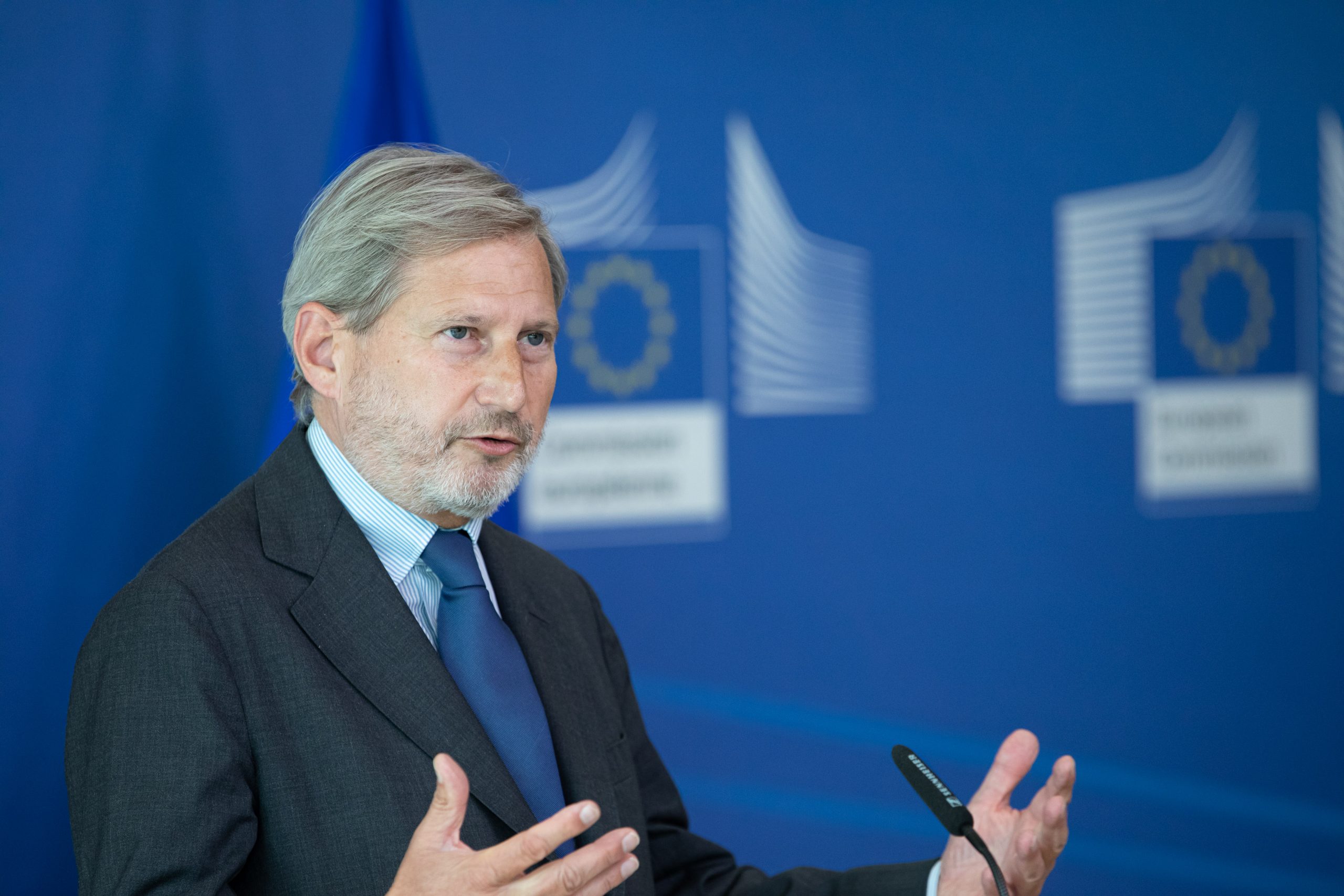Press speakings by Commissioner Hahn at the press conference on the first issuance of EU social bonds under SURE
 ©European Union, 2021, Source: EC - Audiovisual Service
©European Union, 2021, Source: EC - Audiovisual ServiceI would like to thank my team for this excellent work during the last couple of months to prepare everything. So finally, it was a huge success and I will come to it immediately.
But first and for most, let me recall that the Union and everybody in the world was and is facing an unprecedented situation relating to the coronavirus pandemic and now we have managed to give a strong and coordinated European response at least at the level of the financial issues. This is clearly an expression of European solidarity. As key elements of its joint response, the Union has put in place the so-called SURE programme to support Member States’ temporary employment schemes – to help people and to help Member States, in order to help their citizens to keep their jobs. In addition to that, Heads of States and Governments have in principle approved the NextGenerationEU recovery plan, together with the next long-term budget at the European Council end of July.
Once adopted, this next long-term budget and NextGenerationEU will be the largest package ever financed through the EU budget, altogether of around €1.8 trillion.
To finance the European Union SURE programme and NextGenerationEU, the Commission will borrow for the first time on the financial markets on a large scale. We have done it in the past, but now we are entering a new level The full volume under the EU SURE programme (up to €100 billion) will be issued as social bonds, whilst 30% of the NextGenerationEU bonds (in total €800 billion) will be green bonds.
This is a clear sign of the Commission’s commitment to sustainable finance, as well as our interest to align our funds with our strategic political priorities, towards a greener and more social Europe.
Yesterday was an important day because we moved one step closer towards bringing the funds under these instruments closer to the people who need them by placing a €17 billion inaugural social bond under the EU SURE instrument.
The issuance was a dual tranche, with €10 billion having a majority of ten years and other€7 billion with a majority of 20 years.
The bond altogether was over 13 times oversubscribed, so ideally we could have raised €233 billion, which is a sign of the great market interest and trust towards the EU as an issuer and in the EU SURE and social bond framework.
Once we have all SURE bonds or social bonds issued, we will triple the volume of social bonds on a global scale. So today, the volume is around €50 billion if we will issue up to €100 billion, finally this social bond market will be tripled, which is another sign of the strong impact the European Union’s financial policy can have on political priorities.
Now these funds will be disbursed to the countries, which are most in need, which we are of course preparing now. And I have to report that so far 17 Member States have declared their interest. Later this year and in 2021, we will continue with the next bond issuances under the EU SURE instrument.
The total tentative volume foreseen for 2020 will be at least €30 billion. Around mid-2021, we also expect to be able to proceed with the first issuance under NextGenerationEU.
Thus, we will issue over €900 billion in bonds over the period to end-2026 – with most of it heavily concentrated in the period 2021-2024. This is the highest amount ever borrowed in the history of the Union! The successful launch is a vote of confidence in the European Union as borrower and issuer and it will definitely strengthen the international role of the Euro.
The emergence of a triple A rated issuer, capable of issuing euro-denominated debt in such volumes has attracted much interest. This is a huge challenge and responsibility for us. And we are currently working hard to get all elements in place.
You are aware that one of the conditions for this to happen is a final agreement on the next long-term budget and NextGenerationEU, and adoption of the relevant legislation, including the Own Resource Decision. And therefore, I use this opportunity to say also in public, that it is absolutely high time, especially in view of rising infection rates. And may I recall the figures: only in July we had 160,000 infections, in August almost 470,000 in September already 980,000 and now only in October – and we are not yet at the end of this month – we have already 1.4 million new infections. So you see that this is a situation, which is critical, where Europe has to give a strong answer. And that is why, I really urge both co-decision makers, the Parliament and Council, to work hard to have an agreement as soon as possible in order to allow us to enter the next step and indeed provide the necessary financial means. In order to address the urgent needs of our people and our citizens to help them to overcome this crisis.
So, I think it’s not about institutional power games: now it is really about helping citizens, companies, regions, villages and cities most affected by the virus. And they rely on us, we need to deliver on their expectations! But I am hopeful that after this success story of yesterday, this could also be a game changer to those who are now in charge of having a final deal.
Thank you!
